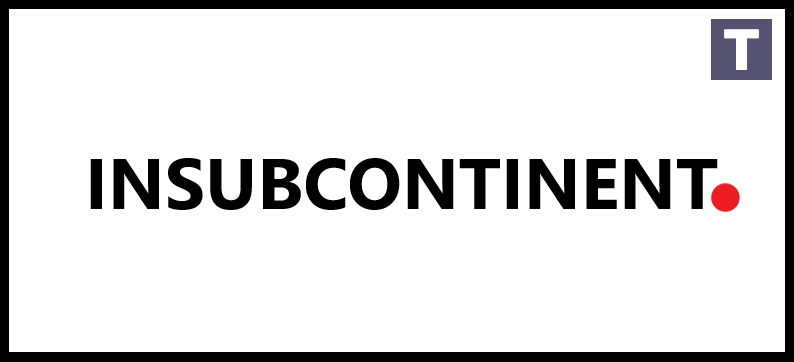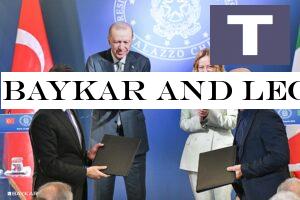With the globalized world going into partial or complete lock down over the Covid-19 pandemic, startups in the travel sector are facing a huge stress test and immediate disruption to business as usual as public health concern spirals and entire populations are encouraged or even forced not to travel.The traditional travel hub of Europe has emerged as a secondary hotspot for the virus, after SARS-CoV-2 first emerged in China late last year.Italy, France and Spain have all reported thousands of cases apiece, with the latter declaring a state of high alert today.
Earlier this week Italy the hardest hit EU country so far imposed nationwide travel restrictions, with confirmed cases passing 12,000 as of yesterday.
Several other EU countries have also implemented varying quarantine measures.
More lockdowns are expected in the coming weeks.In a further development, US President Trump sent shockwaves through EU institutions earlier this week by unilaterally announcing a 30-day ban on travel from most countries in the bloc.Today the European Commission came out with its own response laying out a $37BN package of measures intended to mitigate the socio-economic impact of Covid-19, including bringing forward 1BN out of the EU budget to act as a guarantee to the European Investment Fund to encourage banks to lend to SMEs in affected sectors.This is expected to mobilise 8BN of working capital financing and support at least 100,000 small and medium-sized businesses and small mid-cap companies in the EU, the Commission said, suggesting banks will be in a position to act on the liquidity injection from April 2020.Of course travel startups with investor capital in the bank arent waiting around to react to the coronavirus crisis.
Theyre already ripping up 2020 roadmaps and thinking again swapping out marketing plans and doubling down on product and engineering, according to three businesses we spoke to.We asked three European travel startups how theyre being impacted by the coronavirus crisis and what steps theyre taking to manage a demand crunch combined with ongoing and potentially long term uncertainty in the sector.Berlin-based GetYourGuide, which has built a marketplace selling sightseeing tours and other travel experiences, and last year bagged a $484M Series E round; Omio, another Berlin-based startup thats built a multi-modal travel aggregator and booking platform, backed by nearly $300M to-date; and Barcelona-based TravelPerk, a fast-growing business travel booking platform thats pulled in more than $130M in VC funding as it shakes up a legacy space.Demand is dropping off a cliffAll three told us theyve seen a major drop in bookings combined with a rise in customer service demand as people with existing travel plans seek to get in touch to cancel or reschedule trips.As of this week GetYourGuide said bookings for new experiences are down nearly 50% globally vs its demand forecasts for the past two weeks.
While customer service enquiries have tripled in the past two weeks, and its global cancellation rate has ticked up by 20%.
Those that are still planning trips are doing so closer to home or with less advanced notice than normal with bookings made within three days of the start time up 15%.Its the biggest nuclear winter Ive ever seen in online travel, co-founder and CEO Johannes Reck told A Technology News Room.
Everyone goes and prepares for Easter break and that is not at all happening.
All of the European countries seem to be in lockdown.
None of our Italian customers are booking, the German customers have degraded rapidly.
France and Spain have recently followed.
The UK has been more stable but seems to follow the same course now.
And the US since [Trump announced the travel ban] as well The US travel ban is now sealing it.
So this will be a year of extreme turbulence of the travel market.For Omio its a similar story with bookings over the last two weeks down between 30-40% overall across all markets, according to founder and CEO Naren Shaam,and a big spike in demand for customer service as worried customers look to cancel trips.The whole company is actually stepping in to help customer service because weve seen a spike in cancellations, he said.
In general the impact is heavy.
Demand is dropping off a cliff but its not as bad as we thought but it is definitely heavy.Its seeing similar changes in booking behavior.
Advanced booking has come down drastically, he noted.
But we see a spike in short term last minute trips when people feel comfortableon the region so thats gone up a lot.TravelPerk told us its currently dealing with a drop in business globally of around 50%.
Though co-founder and CEO Avi Meir is braced for further drops if more of the West goes into lockdown forcing more companies to scrap business trips.You would expect that it dropped to zero but right now people are still travelling, he told us.
Everybody who can avoid traveling right now probably should and does but you have many people who just critically have to keep travelling so we see around 50% drop right now.Regionally of course as expected APACS has been the most affected in terms of our volumes Japan, South Korea, Hong Kong and China down north of 95%.
100% depending on which day youre looking and what country youre looking at, he added.
China is actually starting to open up a little bit but at the peak we looked at 100% nothing was being booked in terms of destination.In terms of the more core markets for us, Italy is 84% down right now You also see significant impact in Belgium, Netherlands, Holland, Sweden.
France, Spain and UK are down year-on-year but not significantly yet.
In the Western part of the continent and the UK people are still traveling relatively more than other countries.Demand for TravelPerks customer support has also never been so busy, he also said.We actually are switching some of our sales team to customer support in the coming weeks just to support the volume of tickets, he noted.
Were very proud that our metrics are not declining meaning specifically service level; how fast we solve cases; our C-sats, customer satisfaction.
The metrics we really care about.
Are people happy and are we solving their cases fast? Were keeping them although, so far, the past weeks have been the busiest in customer support since we started the company via number of tickets.TravelPerk has also seen radical changes to the usual booking window.
Most of the trips we see right now is somebody booking for tomorrow or for two days from now because they for know they can travel or have certainty they can travel, said Meir.
Which is unusual compared to normal times.
In normal times people book 20-21 days ahead on average.
So you have a huge decrease in the booking window.While of its flagship products is actually seeing high demand in the current crisis situation, per Meir given its designed to offer resilience against unforeseen changes to plans.We have this product, FlexiPerk, which allows the users to cancel or change for any reason and if they do they get at least 90% of the money back.
FlexiPerk has been really, really on fire over the past few weeks both in terms of users, those who are already on FlexiPerk and also new sign-ups which is actually driving a lot of our growth in terms of signs ups.It gives people the certainty or it reduces the uncertainty about the mid- term or long term future.
So if you are planning a trip in September or in October its reasonable to expect to be able to travel but you dont really know.
And FlexiPerk really plugs this gap because it allows you to book now for September knowing that if you have to change your plans you can do so without losing the money.Right now most of the airlines have changed their cancelation policies so we are able to get full refunds in many cases, he added.All three European businesses said the changes in demand had hit extremely rapidly.Up until maybe 2-3 weeks ago we were still growing, Meir told us.
Because most of our travellers or at least the headquarters of the travellers are concentrated in Europe and North America so the impact was kind of delayed.Since were more a global business we already started noticing Chinese outbound dropping because we have an office in China it hit us already around January, February.
So we already saw that in our Chinese outbound dropping by 90+%, added Omios Shaam.GetYourGuides Reck said it was also forewarned of the looming crunch via their Asian business.
We had already seen a significant decline in our Asian business, he told us.
That was still so small and the overall growth in Europe and the US was so strong that it was negligible at that point in time but it gave us a glimpse.Two of its investors, Japan-based Softbank and Singapore-based Temasek, also put GetYourGuide on early red alert over the novel coronavirus becauseother portfolio companies were suffering heavy impacts.We had two weeks to prepare which I guess put us ahead of the curve for most other US and European companies, said Reck.
Then when corona hit, at the end of February, weve seen a very rapid decline and now the current global travel demand is roughly 60% down from where it should be at this point in time so we are massively depressed.The change is more marked for being set against a tremendous start to the year before the virus hit Europe Reck dubs it the best time in history of the company with January and February seeing it close to doubling business.Rerouting resources in a travel crunchSo how are the three founders coping with a sudden revenue crunch combined with spiralling global uncertainty falling over their sector?All three described being relatively well cushioned on account of recent financing.We are in an incredible position because weve raised this massive round last year and we havent spent a lot of it, said GetYourGuides Reck.
Weve been very frugal with it.
In the early months after the fund raise SoftBank was very angry with us that we were so disciplined and we werent investing more in growth.
Now theyre, I think, very, very happy the new role model for the portfolio.
The good news is that as we come from a position of strength and we will survive and prevail for sure.
Thats the positive news.With plenty of capital still in the bank the team has been able to quickly redirect resources on servicing near-term customer needs during the travel crunch.The way were seeing this internally is with every major crisis comes major opportunity.
At this point in time we believe theres incredible opportunity to make a real different for our customers, our suppliers and our ecosystem broadly, Reck added.
For instance, for customers we have pushed immediately after we saw the news coming full flexibility on bookings and cancelations.
Customers can now cancel all of the experiences 24 hours in advance, no questions asked, for a refund.
If you go under 24 hours you actually get a gift coupon so you can rebook of the full value in the future.
And if youre affected by a lockdown you will get the full amount back no questions asked.Weve been doing mass cancellations for Italy.
Were just doing it for France.
Were doing it for the US because of the travel ban now.
We refund our customers fully, no questions asked, he added.Reck also said its doing what it can to support suppliers who will also clearly be struggling from the same demand crunch.Wherever theres an opening where we see demand popping up again we make sure it gets as quickly as possible to our suppliers, he told us, saying its doubling down on its GetYourGuide Originals in-house short tours product.
We want to be a good partner.
We dont go in now and start to negotiate on commission rates or anything like that.Another area its spending on right now is localization in order that it can support suppliers by being able to cater to demand cropping up off the beaten track.
Were translating our offering into more languages, he noted.
Were making sure the offering itself has better terms for the customers in terms of cancelation policies and were educating the suppliers around that and that will ultimately drive their bookings.
So we are doing quite a bit in order to make sure that they survive and that they get the revenue through our platform that they deserve.Zooming out, Reck told us hes taking a really long term view on travel.The travel landscape through this crisis will inevitably change, he predicted.
When the corona crisis is over online travel will look very different and just survival is going to be an incredible competitive advantage vs the rest.
We believe that a lot of players will go bust.
And we see that already as we speak so over the next couple of days youll see major layoffs, youll see restructurings, youll see people scramble.Thats what we always said when we raised the SoftBank round.
Ironically I never knew that long term view would actually mean that we freeze down for a year but if you look at online travel over the course of history and you look at the big dips like 9/11 was a massive dip and the following recession; the financial crisis was a massive dip you see overall travel is a long term trend.
And I think if you look at a ten year timespan even this corona crisis will just be a small dip in a growth curve.
So Im very long on travel over a longer period of time.
And thats where were doubling down.
So were rather taking the opportunity now to really focus on product and engineering and thats something really liberating to me.
Of not really having a 2020 budget anymore.
The conversion gains on the margin wont matter.
So we can really double down on significantly improving the product for our customer and that means giving a better search and discovery experience, more personalized, curating more GetYourGuide Originals with our suppliers So that when we come out of this crisis we come out with a better technology product and a much better supply base.I think, as I said, just surviving will be a competitive advantage.
Surviving with a better product and better supply will be magic and thats really what were betting on.Omio, meanwhile, is also in a position to look beyond the current crisis in demand.We are lucky to be well funded and have raised a lot of capital, said Shaam.
Were lucky to have very long term investors when you think of Kinnevik and Temasek both of them.
almost like a mutual fund so basically long term capital.Nonetheless, the business has responded to plunging demand by trimming variable costs while also viewing the demand crunch as an opportunity to rechannel investment into the core product.Were cutting all variable costs, managing the costs better, taking precautions using the crisis as an opportunity fixing all the systems we could never invest in in scale because every month theres a metric to meet.
And really then rearchitecting for scalability, he told us.Because the main thing is if you think of travel, human inherent desire to travel is never going to go down.
Right now what were doing is bottling that in for 3-4 months but youve got to open the lid at some point I hope and when that comes out the demand will grow even faster.
And we want to be ready for that.
So were using this, call it, crisis as an opportunity to really build scalability.
All the underlying architecture, campaign structures, whatever data flows were not perfect before, product messaging etc.
The cash position of course is something we have an eye on, as stewards of capital, but its more so that were also using this as an opportunity to really think long term and how we actually benefit.Duty of careAs a crisis response, Shaam said Omio has put together three internal task forces to respond to immediate challenges one focused on supporting its customers; another on its own employees; and a third concentrating on business stability and figuring out where to invest and where to pull back during unusual times.On the customer support side Omios suppliers define cancellation policies so theres only so much it can do but Shaam said its been putting out messaging to help users creating a spreadsheet of cancellation policies listing companies that give refunds and those that dont, and publishing updates on things like cancelled flights.On the employee support side theres a mix of well-being and practical issues being tackled.How can we protect safety regulations? Trigger points.
We have clear guidelines today we triggered that we work from home for 15 days, he said.
How to protect mental health so nobody goes crazy sitting at home all day? Connectivity, all of that stuff.
What if you have school shut down how do you balance children at home alone with working at the same time? All of this stuff.
Theres a lot of practical questions that come up like the design team need to take their chunky monitors home so they can actually design.
All of these things are being tackled by that task force.As a startup you can actually bring these together very quickly, Shaam added.
Today we had a small team that team is now quite large, 10+ people going at all three workstreams.
So lets see how we survive.
Again, theres a lot of uncertainty but I feel that the best thing I can do is bring stability, bring confidence into the organization.TravelPerks Meir said the business is also most focused on responding to immediate challenges and needs including keeping up with the demand its seeing.Even though bookings are down new sign ups are up, he told us.The focus right now as an organization is really on the day by day we need to make sure we keep providing the service, he said.
We keep actually selling and a lot of companies are signing up.
Sign ups are actually dramatically up.
People are signing up theyre just obviously not travelling so we have a lot of short term priorities that are extremely important.Maybe if we hadnt raised a C round last year $100+ million we would be in a different situation but right now we are fortunate to be in this position so we have to focus on short term priorities without knowing where its going to end.The company is also using a moment of plunging sales to direct attention on product.
And is hiring more engineers to be able to accelerate product dev including to build crisis response features.Im sure were not unique in the tech world but were actually investing more in the product.
So we keep hiring we actually increased our hiring plan for product and engineering.
And so far were not reducing our burn lets say but were shifting that towards really what matters for our customers.
Were already ahead of the curve in product but this is a really good opportunity to keep pushing on our strengths and another one were doing is adjusting the business and the business model as well.Meir gave the example of a premium concierge service which its just decided to provide for free for all its users for the next three months.
Although its going to increase dramatically our costs in customer care its the right thing to do for our customers, he said of that particular coronavirus triggered business adjustment.Youll see some really cool stuff coming out, he added.
The product team, together with the commercial team is changing roadmaps.
In a way we threw the roadmap of 2020 to the bin and we started working on a weekly basis.Another example he gave is a new feature its launched in partnership with medical and travel security company, International SoS, to help companies not only track where in the world their employees are but ensure they have the medical or other crisis expertise support available should the worst happen off-site.
Its the best company in the world for duty of care, said Meir.
Its one of those topics that in normal times people dont really like to think about it but this is probably the highest request we were getting in the past 2-3 weeks from customers.We went from idea to releasing it in less than 5 days of work, he added.
So again reducing the risk, reducing the uncertainty piece.
This is a thing that were going to do more and more as this situation evolves.
If we have a request for a feature like duty of care which makes tonnes of sense right now were going to shift the roadmap and do more of these kind of things.This is a moment to be decisive and adaptable but also courageous and to invest in what makes TravelPerk stronger this year, next year and ten years, he added.
This doesnt change we have great investors.
We have a good cash position, great team.
So we should keep hiring, we should keep investing in the product, we should keep investing in our service so my biggest worry is that we [dont] act out of panic or out of confusion and thats something we should be aware of and not do.
But Im happy to say that thats not the case.As part of its own pro-active crisis response, TravelPerk has this week switched to 100% remote working a radical change for Meir, who has deliberately required presence from his staff up to now for workplace culture reasons.We dont do remote work.
Its something thats one of these trendy things that we decided not to do yet for various reasons.
We just think our culture is much stronger when people are physically in the same space and we switched from nobody does remote work to 100% remote, he told us.We thought that the government especially in Spain where most of our team is is not reacting fast enough and aggressively enough [to Covid-19].
This is really unfair for the elderly and those who have previous health conditionsSo we decided to take action And I was just amazed how fast we transitioned from a company that doesnt do remote to full on remote.GetYourGuide has also gone fully remote.We did that on Monday, said Reck.
Everyone called me crazy and now on Friday everyone wants to have our best practices playbook.The health and safety of our employees and most importantly of the community around us [is our biggest concern], he added.
We are in constant contact with everyone to make sure people feel safe.They are now at home, they follow the news all the time.
Theres huge psychological pressure the travel markets going down, the stock markets going down so for me by biggest role is to keep that strong engagement and morale and that people dont feel threatened by the situation around them.As it happens, Reck is a biochemist by education so likely one of relatively few founders in the travel space with hands-on lab experience of viruses.
Hes also braced for the longest nuclear winter of business disruption of the three startups we spoke to.What we know about this virus is there is no immunity in the population meaning that this will continue to spread, he said.
Every potential person is a host.
And its very infectious and it seems to stick around quite a bit.
And it puts a lot of stress on public health systems.
So I personally anticipate there will be a very long lockdown in a lot of countries.
And there will be only a very slow recovery.
If youd ask me we might see some reopening of the travel landscape in summer but I think that will be far diminished from a typical season.
Well only see a full recovery towards May, June, July 2021.
I dont think it will be earlier than that.It will get worse, he added.
We know now its very likely there will be a lockdown [across the West].
My biggest wish for the next couple of weeks will be that employees continue to be healthy, safe and continue to be able to work and contribute like theyve done.Omios Shaam is expecting at least several months of disruption to business as usual pointing to the lack of a swift and coordinated response from governments to implement quarantine measures.We need a system-wide [response] like China or Singapore has done beautifully to really prevent it and I dont believe thats going to happen so were bracing for 3-4 months impact, he told us.I just went out last night in Berlin with my wife for dinner and the restaurants are full, its crowded, the subways are full full! Like not even 20% lower.
Completely full.
We had to make a reservation to get a table etc.
So unless governments, in a very coordinated way, shut down borders for a period of 4-6 weeks so everybody goes into isolation in one go and everybody comes out its going to drip feed for a long time because people are acting in different points of time on their own means.On the question of whether there will be a lasting impact on the travel market as the pandemic undoes global supply chains and routines, Shaam said again thats likely to depend on how co-ordinated or otherwise the response is.Theres a lot of fixed costs part of travel.
So I think the answer to that largely depends on how co-ordinated and how quickly we can contain.
If we all actually manage to come back in 3-4 months I think were in a good place because itll bounce back quite strongly.
If its drip feeding, and it takes the wind out for a very long time, then there will be a different situation but I hope not.In the meanwhile, with so many businesses getting au fait with virtual meetings and videoconferencing tools, the coronavirus crisis could also have a long term impact on demand for business travel if lots of companies realize quite how much can be done remotely.On this element of the crisis, TravelPerks Meir isnt concerned.Its an interesting theory, he said, deferring from hazarding a guess on whether it will come to pass or not.
It doesnt really matter for us as a company.
Because companies spend $1.6TR a year on business travel.
And its a market that is growing.
Before this crisis predicted growth of 6 or 7% in 2020 which is huge compared to the size of the market.
So even if were talking about 10-20%, lets say, at the edges this doesnt change the picture.
You still will have a tonne of business travel when we come back out of it.If we zoom out a bit from this situation there is a trend for more sustainable approach to travel, Meir added.
So if so many things can turn into a Zoom call I dont think its a bad idea for the planet.
And we will do well.
Were not worried about a scenario like this.Here TravelPerk isnt worried because the startup has another product for that: GreenPerk a carbon offset offering it launched earlier this month.
Its been developed in partnership with non-profit Atmosfair, which works on decarbonization via UN-endorsed carbon mitigation projects.Many companies asked us to help them offset and reduce the impact that their travel generates and we thought that just reporting on what harm you do is not good enough.
We wanted actually to make a difference, said Meir.
One of the projects that we chose is efficient cooking stoves in Rwanda.GreenPerk uses an algorithm to calculate the carbon footprint of a given trip and then applies a per booking fee proportional to the pollution created with the fee going to fund the carbon offset project.
GreenPerk is an opt in product and Meir says its already had amazing traction, with more than 50 companies already signed up and using it.
Its unfair for us people who live in very comfortable counties to ask people in Rwanda to stop cooking their food but if we can help them transition to efficient and also faster ways of cooking then we should definitely do that so the project funds efficient cooking stoves to replace the polluting ones.If the world after this crisis looks like we are conscious about how we travel when we do travel we try not to have an impact and if, sometimes, making Zoom calls are better than face to face I think its not a bad scenario for the world.
And we as a travel company will adapt like we always have, he added.
Its more interesting to look at the long term implication rather than is it good for our quarter or not.
Music
Trailers
DailyVideos
India
Pakistan
Afghanistan
Bangladesh
Srilanka
Nepal
Thailand
StockMarket
Business
Technology
Startup
Trending Videos
Coupons
Football
Search
Download App in Playstore
Download App
Best Collections

 5
5


















